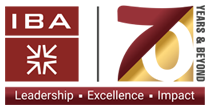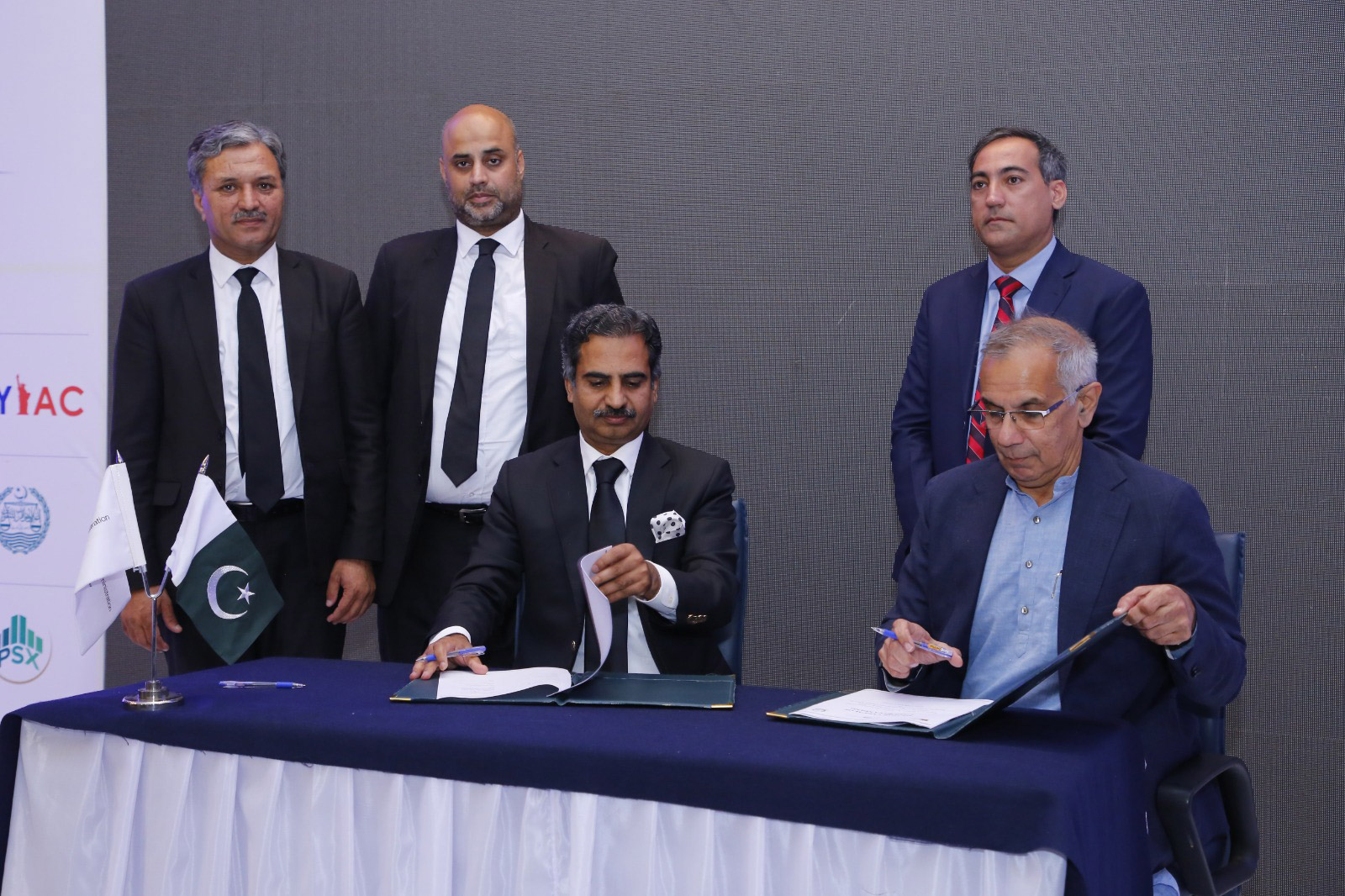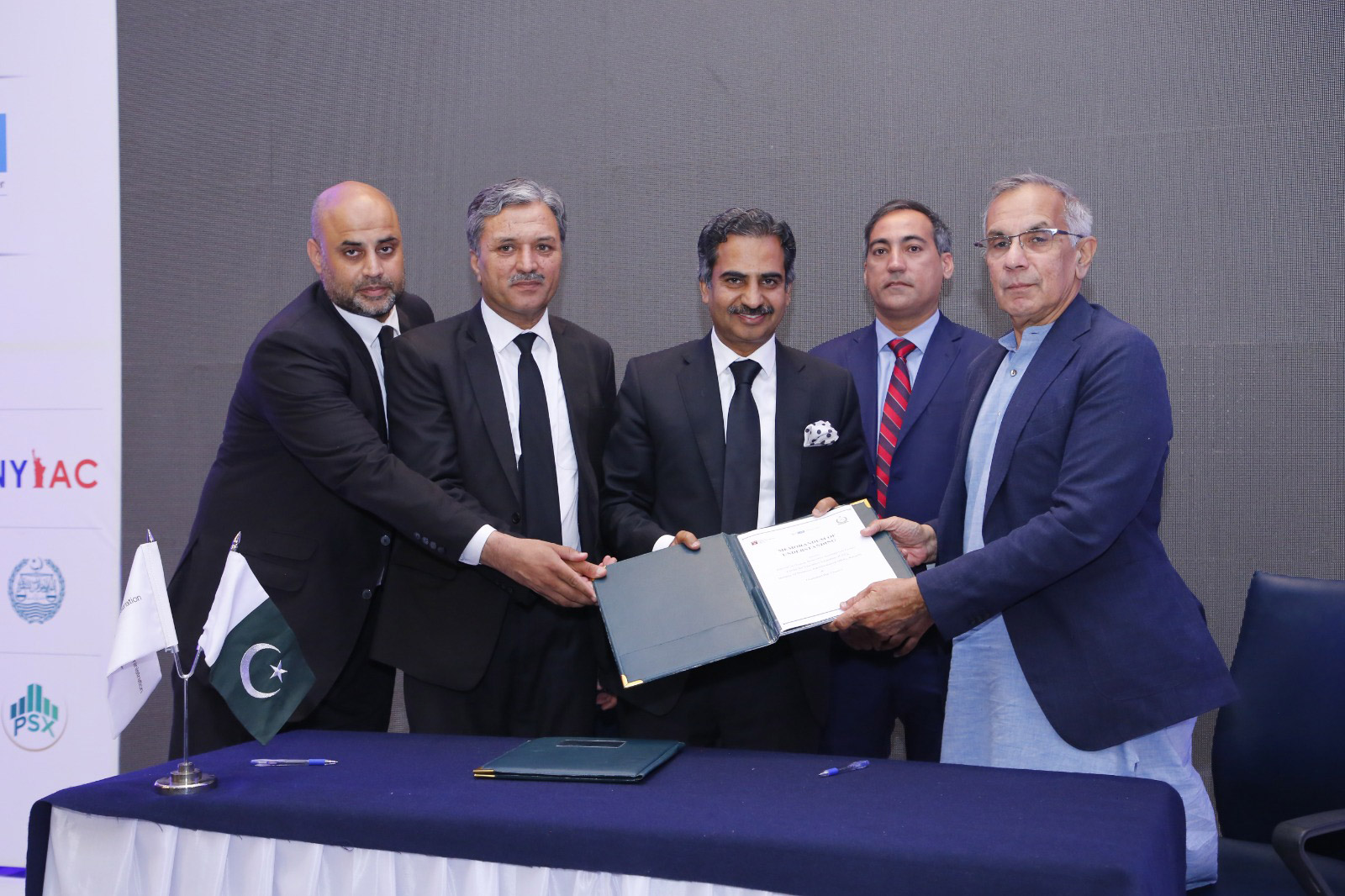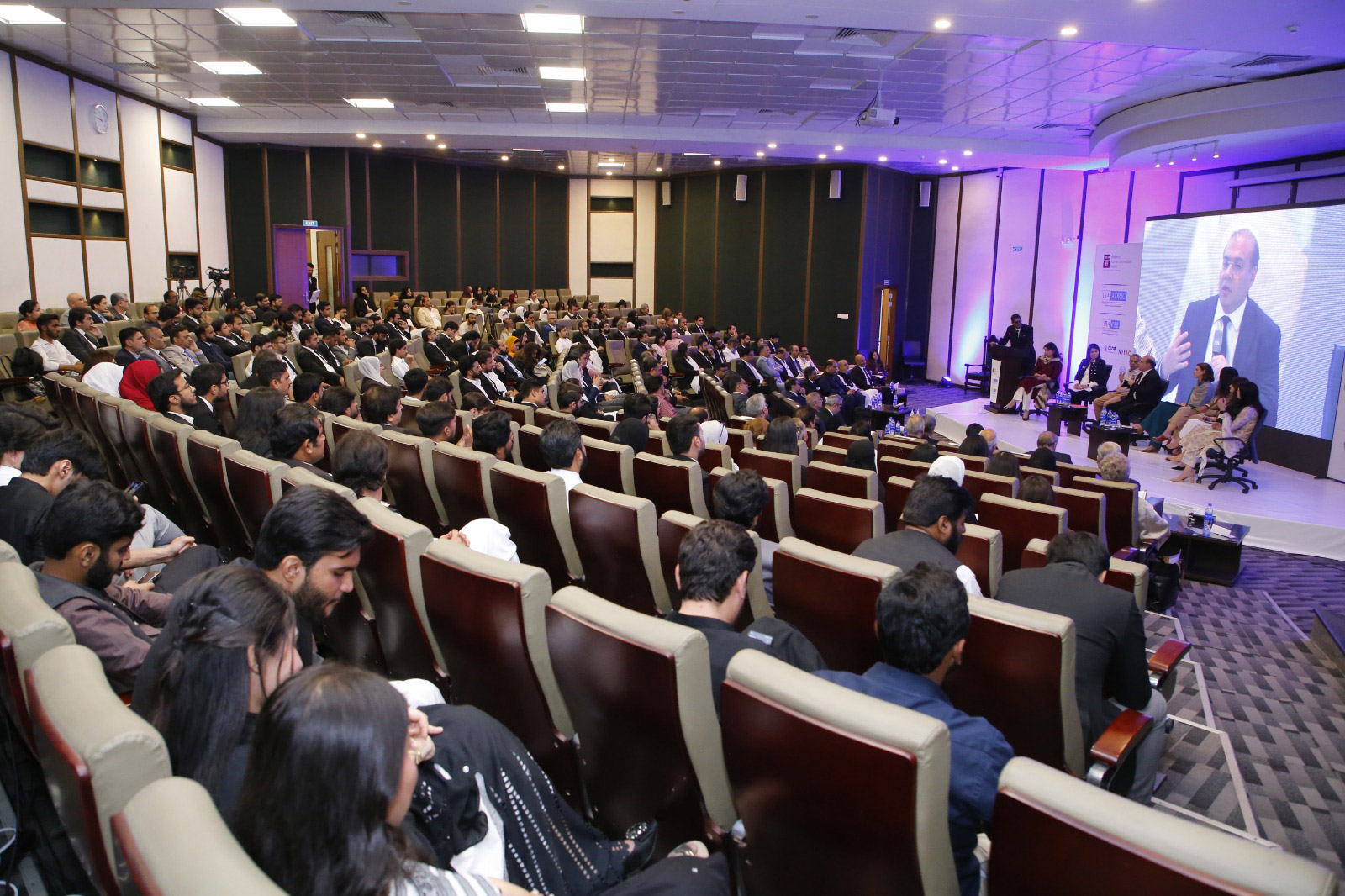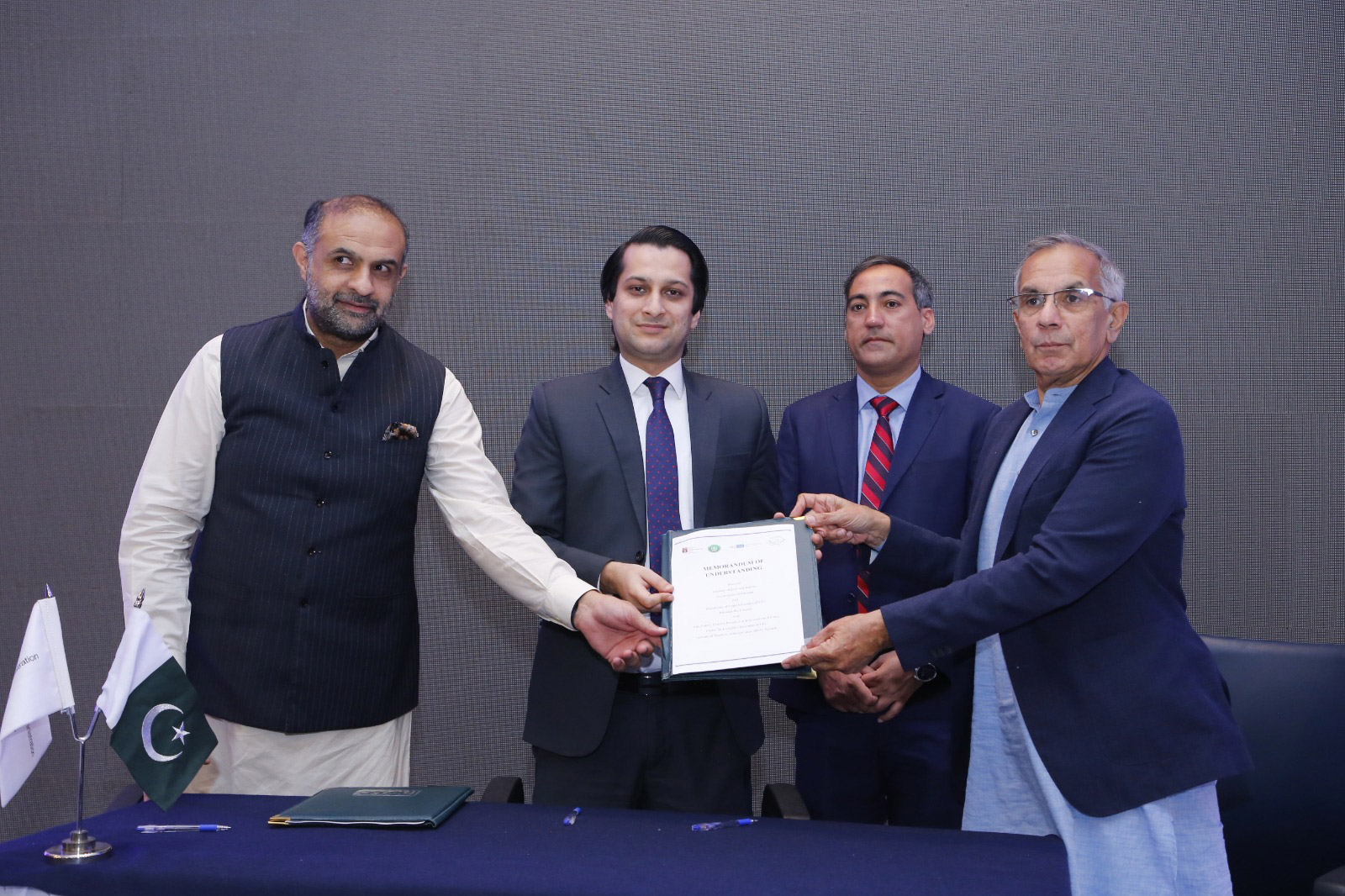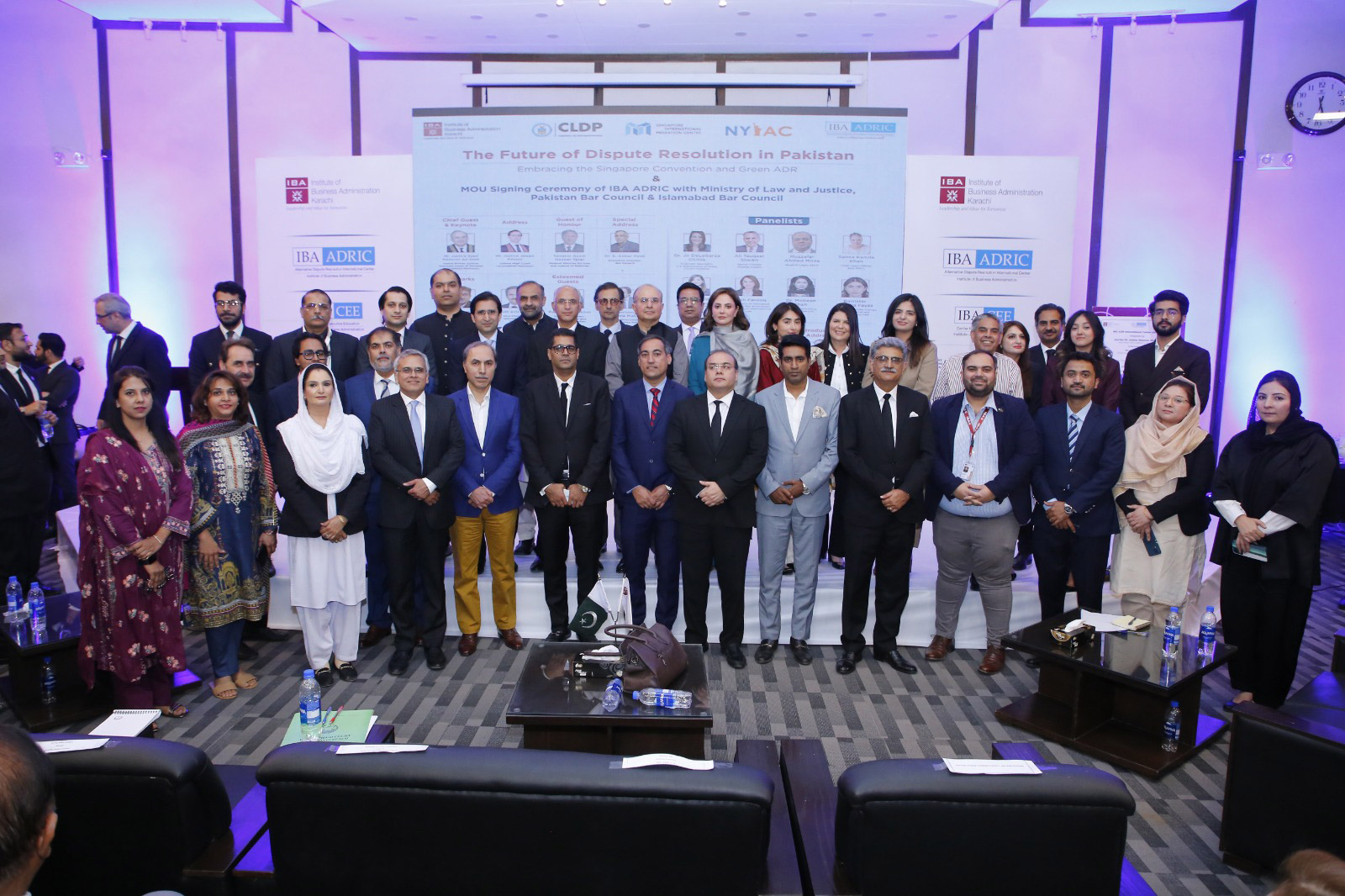IBA-CEE hosts ‘The Future of Dispute Resolution in Pakistan’
May 31, 2024: The Institute of Business Administration (IBA), Karachi in collaboration with the Singapore International Mediation Center (SIMC) and the Commercial Law Development Program (CLDP), U.S. Department of Commerce successfully hosted a seminar titled ‘The Future of Dispute Resolution in Pakistan: Embracing the Singapore Convention on Mediation and Green ADR’, at the National Institute of Banking and Finance (NIBAF) in Islamabad. The event brought together distinguished legal experts, climate change advocates, and key stakeholders to discuss the future of dispute resolution in Pakistan with a focus on mediation and sustainable practices.
Kamran Bilgrami, Director IBA-CEE and SIMI Accredited Mediator, delivered the welcome address, setting the stage for an engaging and informative session.
Eric Ives, Attorney Advisor, Commercial Law Development Program (CLDP), U.S. Department of Commerce, shared insights into the U.S. government's services and assistance to Pakistan's ADR movement. This was followed by an enlightening explanation of the Singapore Convention on Mediation by Sidharth Jha, Legal Counsel at the SIMC.
Amin Lakhani, Honorary Consulate General to Singapore in Pakistan, provided his perspective on the convention, and Dr. S Akbar Zaidi, Executive Director, IBA Karachi, highlighted the ADR initiative by IBA and expressed his commitment to future of ADR in Pakistan through the IBA ADR International Center (IBA ADRIC).
A significant milestone of the seminar was the signing of Memorandums of Understanding (MOUs) of IBA ADRIC with the Ministry of Law and Justice of Pakistan, the Directorate of Legal Education, Pakistan Bar Council, and the Islamabad Bar Council.
The second part of the seminar focused on ‘Green ADR for Sustainability’. Syed Bulent Sohail, Attorney-Adviser to IBA ADRIC and SIMI Accredited Mediator, introduced the concept of Green ADR, emphasizing its core principles and environmental benefits. This session included an engaging panel discussion on climate change and ADR, featuring prominent experts such as Ali Tauqeer Sheikh, Senior Climate Change Expert, and Dr. Jo DeLaGarza-Chitlik, U.S. Fulbright Specialist and Expert Mediator, among others, including Muzzafar Ahmed Mirza, Head of Legal SECP; Saima Kamilla Khan, Chief Legal Counsel Jazz; Iqra Mussadaq, CLO Special Technology Zones Authority; Dr. Mobeen Shah, CLO Zong; Sibah Farooq Advocate and Barrister Zunaira Fayyaz climate change expert. The panel discussed practical ways to adopt and institutionalize Green ADR in Pakistan so that the law and dispute resolution mechanisms are galvanized to address burgeoning impact of climate change in Pakistan. During the panel discussion, heads of various departments highlighted their contributions to combating climate change. Multiple panels underscored the significance of green technology and AI for effective disaster management. There was a consensus on the necessity to expand existing laws to address contemporary environmental challenges adequately. Furthermore, the discussion emphasized the establishment of specialized tribunals for specific alternative dispute resolution (ADR) methods, recognizing the complexity and specialized nature of environmental disputes.
In his insightful address at the seminar's conclusion, Justice Jawad Hassan, Lahore High Court, highlighted the pro-mediation stance of the superior judiciary. He underscored the positive advancements in this regard and stressed the urgent need for Pakistan to ratify the Singapore Convention, which already had provisions in implementation. Supporting his argument, he referenced numerous judgments.
Chief Guest, Justice Syed Mansoor Ali Shah, Supreme Court of Pakistan, delivered a keynote address, emphasizing the crucial role of mediation in the justice system. He presented alarming statistics, revealing a staggering 2.4 million pending cases in Pakistan, mainly within the district judiciary, with 68,000 new cases filed monthly at the district level. Advocating for a paradigm shift, he proposed a sequence from negotiation to mediation to arbitration, positioning courts as the final recourse.
The discussion also highlighted the importance of raising awareness and ongoing training initiatives, stressing the transformative potential of embracing alternative dispute resolution methods.
Raza Chinoy, COO, EcoPack Pvt. Ltd. and President of the IBA Alumni Islamabad Chapter, delivered the vote of thanks, expressing gratitude to all participants and organizers. The seminar concluded with a networking tea, providing attendees an opportunity to connect and discuss the evening's insights.
This seminar marks a significant step forward in promoting mediation and sustainable dispute resolution practices in Pakistan, paving the way for a more efficient and environmentally conscious legal framework.
About ADR International Center at IBA:
Based on the Harvard Negotiation Project, the IBA Alternative Dispute Resolution International Center (IBA ADRIC) at the Center for Executive Education (CEE), has been established to offer alternative dispute resolution (ADR) services to relieve the burden on Pakistan's court system. The IBA ADRIC at CEE aims to be focused towards promoting ADR mechanisms for domestic and international disputes, trainings, research, and advocacy. The IBA ADRIC is supported by the U.S. Department of Commerce's Commercial Law Development Program (CLDP), the Singapore International Mediation Centre (SIMC), the New York International Arbitration Center (NYIAC), High Courts of Sindh, Islamabad and Lahore, FBR, SBP, PSX, FBR and SECP. The center has the potential to improve Pakistan's legal and commercial landscape by reducing the court case backlog and expediting dispute resolution; providing government, enterprises, and businesses with cost-effective solutions to their disputes; establishing Pakistan as a leader in promoting international ADR and paving the way for Pakistan's accession to the Singapore Convention on Mediation. The IBA will achieve these goals by investing in research, advocacy, and capacity building for Pakistani professionals by establishing a strong panel of qualified trainers, experts, mediators, and arbitrators.
